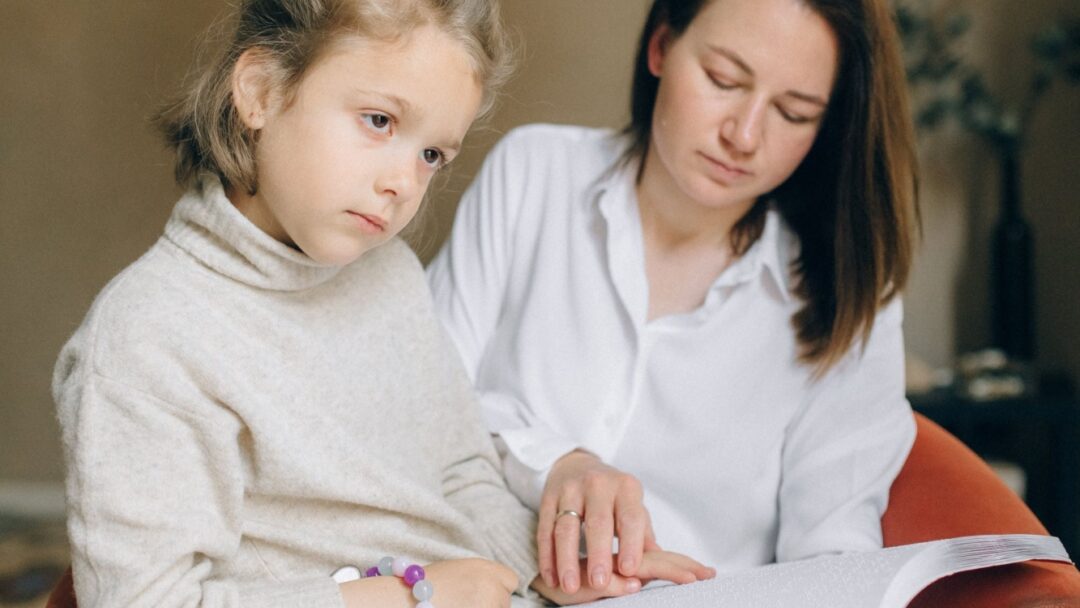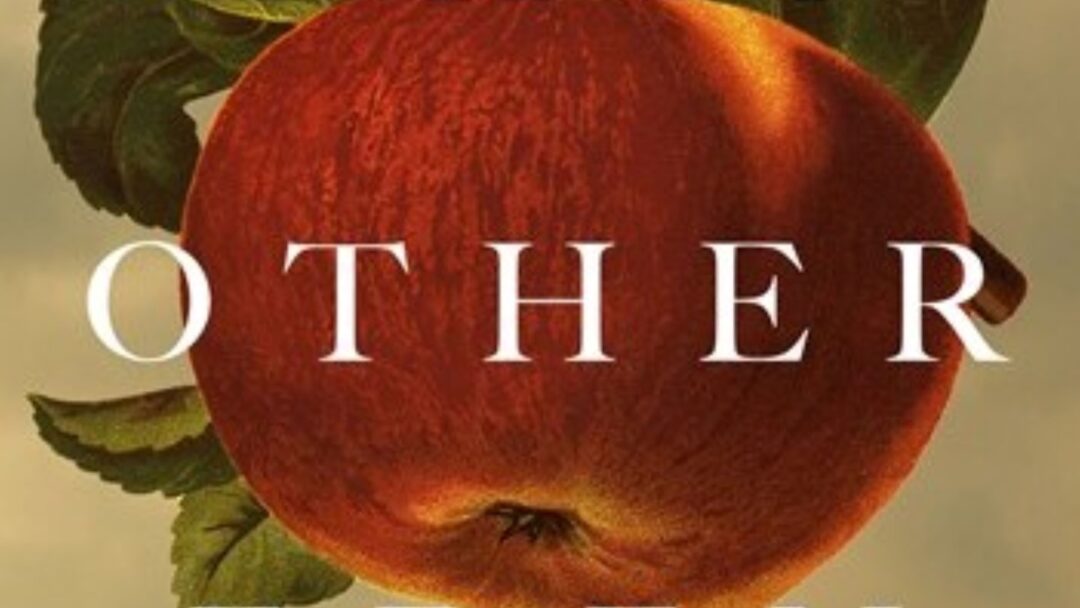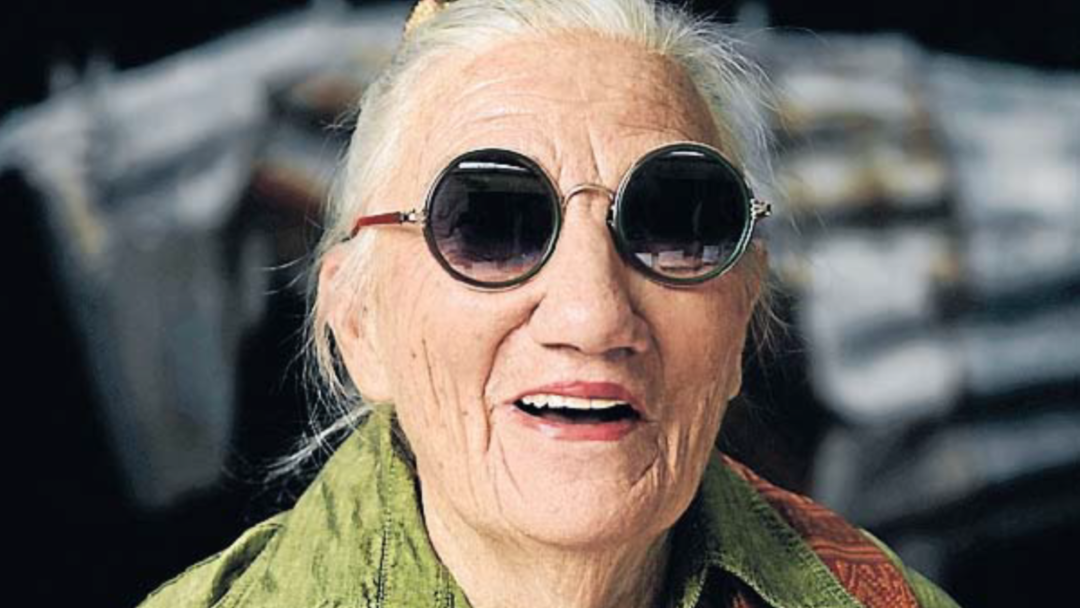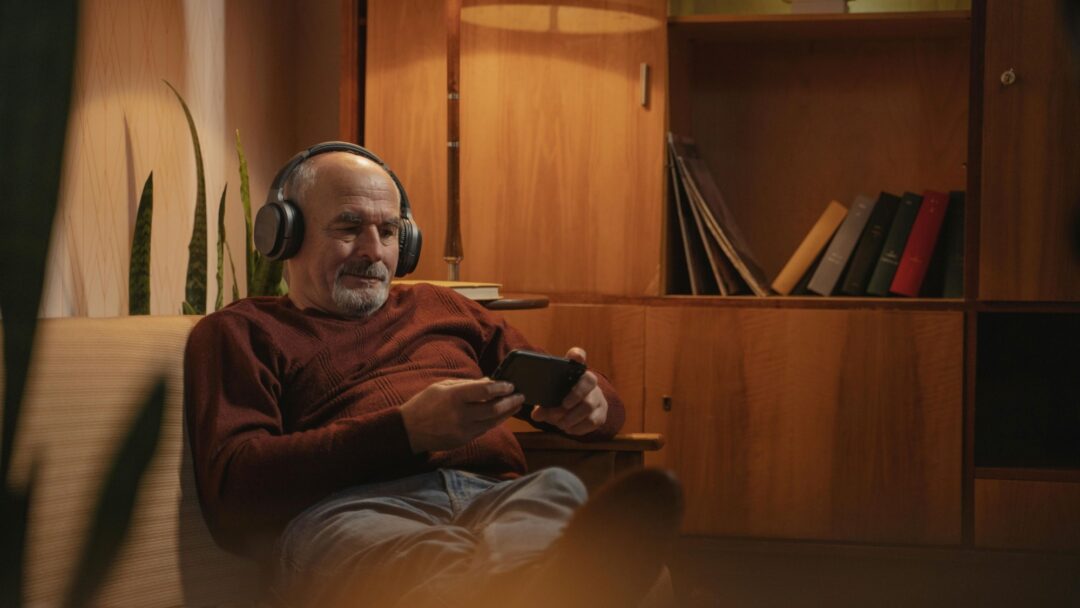Audio
Reading about World War 1
Hear This by
Vision Australia3 seasons
25 April 2025
28 mins
ANZAC Day special featuring reviews and short readings from books about the First World War.

This weekly series from the Vision Australia Library updates its publications and events accessible to people with print disabilities. Host Frances Keyland and occasional guests offer reviews, selected readings, reader recommendations and forthcomning events.
In this edition:
00:09 Program theme/ID
Take a look. Take a look inside the book. Take a look...
00:25 S2
Hello and welcome to Hear This. I'm Frances Keyland and you're listening to the Vision Australia Library radio show, where we talk about books in the Vision Australia Library collection. Today, because it is ANZAC Day, we're going to have some books about the First World War, not so much about the timelines or the histories, but perhaps a little bit more about the people, the outsiders who were part of World War one and the aftermath. So I do hope you find this show interesting and enjoyable. ANZAC Day, a day of remembrance about the efforts in the fallen, particularly around Gallipoli.
So today we do have some books in the collection, and the first one will be The Lost Boys - The Untold Stories of the Underage Soldiers Who Fought in the First World War. In the First World War of 1914 to 1918, thousands of boys across Australia and New Zealand lied about their age, forged a parent's signature and left to fight on the other side of the world. Though some were as young as 13, they soon found they could die as well as any man. Like Peter Pan's Lost Boys, they have remained forever young. These are their stories. This extraordinary book captures the incredible and previously untold stories of 40 Anzac boys who fought in the First World War, from Gallipoli to the armistice.
Featuring a haunting images of the boys taken at training camps and behind the lines, these tales are both heartbreaking and rousing, full of daring ingenuity, Recklessness, random horror, and capricious luck. Let's hear a sample of The Lost Boys The Untold Stories of the Underage Soldiers Who Fought in the First World War, by Paul Byrnes. It's narrated by Simon Harvey.
02:18 S3
When war broke out, Andrew Fisher was about to become Prime Minister of Australia for the third time in six years. He was a quietly spoken Scot, a miner who'd migrated to Australia in 1885. He had led the Australian Labor Party since 1907, guided by firm socialist principles and a high sense of humanity. The idea of war appalled him, but his loyalty to Great Britain was firm, even if his belief in its greatness was qualified. At the end of July 1914, as the drums beat their loudest in Europe, Fisher pledged Australian support for the mother country if war should come.
Fisher won the election on the 5th of September 1914, a month into the war, on the 7th of September, he gave a speech from a hotel balcony in Maryborough, Queensland, in which he repeated his now famous phrase Australia would support Britain to the last man and the last shilling against its foes. The crowd cheered lustily. A few kilometers from this hotel balcony, Albert Stanley Scott heard the call. He was the fifth son of Joseph and Eliza Scott, who lived in Gympie in earlier years. They now grew sugar cane in a beautiful valley at Mount Bauple, halfway between Gympie and Maryborough.
Before they met and married in Brisbane, Joe Scott had followed the same path as Andrew Fisher, leaving Britain for a better future. The Scotts almost certainly knew Fisher, who'd come to Gympie as a miner in 1887 after his schooling at Mount Bauple. Albert Scott went cutting cane. Backbreaking physical work. The photograph, taken just after he enlisted, shows he had the hands to prove it. He looks like he's wearing leather gloves. Even so, at five feet, 6.5in, 168cm, he was just tall enough to get into the army.
04:21 S2
So that was the Lost Boys - the untold stories of the underage soldiers who fought in the First World War, by Paul Burns. Paul is [spells name]. And that book goes for 8.5 hours. Paul Byrnes started working at the Sydney Morning Herald in 1976. He was director of the Sydney Film Festival for ten years until 1998, and in 2007 he won the Pascal Prize, Australia's highest award for critical writing in the arts. And this bestseller, The Lost Boys, about underage Anzacs in the First World War, won the Indie Award for Best Book, and was shortlisted for the Overall Industry Award for Best Illustrated Book. He's also written a second book, which we don't have in the collection called Sons of War, which focuses on underage soldiers in the Second World War.
The next book is Soldiers Don't Go Mad - a story of brotherhood, poetry, and mental illness during the First World War. This is by Charles Glass. A personal history of the friendship between the Great War poets Siegfried Sassoon and Wilfred Owen. Soldiers Don't Go Mad tells the story of psychiatry, the traumatic effects of war, and the healing properties of poetry.
Second Lieutenant Wilfred Owen was 24 years old when he was admitted to the newly established Craiglockhart War Hospital for treatment of shell shock. A nascent poet trying to make sense of the terror he had witnessed, he read a collection of poems from a fellow officer, Siegfried Sassoon, and was impressed by his portrayal of the soldier's plight. One month later, Sassoon himself arrived at Craiglockhart, having refused to return to the front after being wounded during battle. Over their months at Craiglockhart, each encouraged the other in their work, their personal reckonings with the morality of war and their treatment.
Therapy provided Owen Sassoon and their ward mates with insights that allowed them to express themselves better, and for the 28 months that Craiglockhart was in operation, it notably incubated the era's most significant developments in both psychiatry and poetry. Soldiers Don't Go Mad tells, for the first time, the story of the soldiers and doctors who struggled with the effects of industrial warfare on the psyche. As he investigates the roots of what we now know as PTSD, glass brings historical bearing to how we must consider war's ravaging effects on mental health, and the ways in which creative work helps us come to terms with even the darkest of times.
Let's hear a sample of Soldiers Don't Go Mad. A Story of Brotherhood, poetry and Mental Illness during the First World War by Charles Glass. It's narrated by Mark Elstob.
07:17 S4
At the outbreak of the late European war, wrote British Army psychiatrist doctor C Stanford Reid, there was little foresight shown or preparations made for a large influx of mental cases. Doctor Reid ran the Army's only mental asylum, the Royal Victoria Hospital's D Block in Netley, Hampshire. Founded in 1870. D block was better suited to locking up the incurably insane than to returning men to normal life. It had only 121 beds for enlisted men and three for officers, insufficient for the thousands of mental cases the Great War was turning out every month.
The government needed more beds, more hospitals, more psychiatrists, more nurses. It opened psychiatric institutions starting in November 1914 with a special hospital for officers beside London's Kensington Palace and Moss Side red Cross Military Hospital at Maghull, near Liverpool. Maghull filled to capacity within two months, forcing the War Office to requisition additional hospitals throughout the British Isles. Hospitals, not asylums, wrote doctor Reed, to obviate, if possible, the stigma that might be felt to attach to the name. In 1915 alone, Nervous Collapse claimed 21,474 officers.
As the Somme bled Britain's armed forces throughout the summer of 1916, the War Office turned to James Bell's Edinburgh Hydropathic. Its swimming pool, Turkish baths, common rooms and 12 rural acres offered essentials for traumatized officers to begin their recovery. The government requisitioned the hydro and Bell moved to another property he owned nearby. The hydro required little renovation. The massive villa had beds for 174 patients, with 2 or 3 to a room. Its administrative offices easily converted to psychiatric consulting rooms. It was as if Peddie and Kinnear had designed Craiglockhart for victims of shell shock.
09:25 S2
And that was the sample of Soldiers Don't Go Mad - A Story of Brotherhood, Poetry and Mental Illness During the First World War by Charles Glass. It goes for ten hours. A little bit about the author. And this is just from Wikipedia here. He was born in 1951. He's an American British author, journalist, broadcaster and publisher specialising in the Middle East and the Second World War, and has worked as a correspondent for Newsweek and The Observer. Soldiers Don't Go Mad was published in 2023. Oh, and Charles is [spells name].
The next book is by Australian author Jackie French and it is The Great Gallipoli Escape. Although this book is fiction, she's renowned. I'm Jackie French for her historical research, and this book is based on firsthand accounts of those extraordinary last weeks of the Gallipoli campaign. And this is a fascinating, lost story of how 150,000 men and their horses and equipment were secretly moved to waiting ships without a single life lost. An unforgettable story told through the eyes of a boy who lied about his age to defend his country.
So this is for anybody aged ten years and up. So it's a young adult novel, but I'm sure adults will enjoy this as well because of the beautiful historical research that Jackie French does. 16 year old Nipper and his Gallipoli mates Lanky Spud, Bluey and Wallaby Joe are starving, freezing and ill equipped by November 1915. They know that there is more to winning a war than courage. The Gallipoli campaign has been lost. Nipper has played cricket with the Turks in the opposing dugout, dodged rocket fire and rescued desperate and drowning men when the blizzard snow melted. He is one of the few trusted with the secret kept from even most of the officers. How an entire army will vanish from the peninsula over three impeccably planned nights.
Based on first hand accounts of those extraordinary last weeks of the Gallipoli campaign, this is the fascinating lost story. Let's hear a sample of The Great Gallipoli Escape by Jackie French. It's narrated by Paul Whitford.
11:40 S5
Nipper gazed proudly at his new rat as it scrabbled at the edges of the biscuit box, trying to find a way past the wire. As the autumn wind whistled, the familiar stench of salt and rotting flesh down the trench. Nipper wrapped his scarf around his throat more firmly, glad to be wearing all six pairs of mum's socks. Every bloke at Gallipoli, even the officers, wore boots at least two sizes too big, so they could wear more pairs of socks, or even pack the boots with straw. The rat stared up at him with its beady eyes, showing its teeth.
Yes, thought Nipper, absently, squashing a louse under his sleeve. This rat would win any race he was put in. Biggest bally rat I've seen, said lanky, glancing down from one of the periscopes that helped them more safely peer over the trench in case there was any movement from the Turkish lines on the hill above them. His rifle, with its bayonet, stood at the ready. Yep, agreed Wallaby Joe, whittling himself a toothpick. He was off duty like Nipper. Wallaby Joe's face was almost black now from all the layers of dirt. Nipper had never known him to bother to go down to the sea for a wash.
Wallaby Joe still never said much. He was older than most of the others, maybe even 40. Nipper knew he'd been a swaggie and a fencer on and off before the war. But Wallabee Joe never talked about his home or family. Curly didn't say anything either. He hadn't said a word for days. He stood at his post, his hand trembling on his rifle, his face pale. He'd been like that for months since they'd battled to take these trenches. The maze the men had called Lone Pine after the single tree left on the hill.
13:43 S2
And that was The Great Gallipoli escape by Jackie French. Jackie is [spells name]. That book goes for three hours or nearly four hours. Actually three hours. 57 minutes to be precise. And a good one for young adults and adults.
Next we have Kitty's War. We're back to non-fiction. Kitty's war the remarkable wartime experiences of Kit McNaughton. And I can remember years ago, I think it was Bill jolly, um, who recommended we get this book in the collection. Kitty's War is based upon the previously unpublished war diaries of Great War Army nurse sister Kit McNaughton. This decisive and dryly humorous woman embarked upon the troopship Orsova, bound for Egypt in 1915.
Kit's absorbing diaries follow her journey through war from Egypt, where she cared for the Gallipoli sick and wounded, to the harsh conditions of Lemnos island off the coast of the Dardanelles and then on to France and the Somme. Here she nursed severely wounded German soldiers for the British during Passchendaele. A year later, she ran the operating theatre of a clearing station near the front line. Kit finished the war as Australia's first plastic surgery nurse, assisting medical pioneers in this field as they repaired the shattered faces of Australian soldiers. Through Kitty's diaries and Janet Butler's thoughtful narration, we see the war through the eyes of a young Australian nurse as she is transformed by what she witnesses.
Let's hear a sample of Kitty's War the remarkable wartime experiences of Kit McNaughton. It's narrated by Ann MacDonald.
15:30 S6
In 1915, the northern Aegean island of Lemnos is undeveloped. It does have, however, one of the finest deep water anchorages in Europe. In April, the landing at Gallipoli was launched from the naval base in the harbour. It is the head of the lines of communication between the forces of the Military Expeditionary Force at the front and the base at Alexandria. When sister McNaughton makes a triumphal journey on the Assaye into the sheltered haven on a sunny autumn morning Saturday 18th, we had word to disembark. Great excitement over it.
A steam launch affair came out for us and all our baggage. It was a novel sight to see all the luggage and sisters all over it and round it, steaming off and all wondering what we were going to. Arrived at a small jetty after passing between rows and rows of gunboats and transports, and all loudly cheering us. Footnote the potential of Mudros harbour is the head of the lines of communication and of the island, as an intermediate military medical base was only developed for the August offensive, Defensive, although the harbour had been a naval base from the beginning. End.
Footnote. At any one time there are between 150 and 200 ships in the harbour, with more than 50 arrivals and departures each day. Permanently anchored in the harbour is the liner Aragon, the naval and military administrative headquarters. Footnote. Stationed on board is the British Admiral of the fleet, Rear Admiral Williams, who by arrangement with the Greek government is the military governor of the island. With him is the principal hospital transport officer, who is also a naval medical officer and is in charge of the evacuation of the sick and wounded by sea.
17:33 S2
That was Kitty's War - the Remarkable Wartime Experiences of Kit McNaughton by Jeanette Butler. [spells name]. That book goes for 15 hours. Kitty's War was published in 2013. Janet Butler grew up in the same Victorian district of dry stone walls, wheat fields, and meandering creeks. Except many decades apart, Janet Butler is an honorary associate in the history program at Latrobe at La Trobe University in Melbourne, Australia.
Her research interests are war and autobiographical narratives. Her present work focuses on the experiences of the individual as expressed in their personal narratives, as a lens on war and change. And she currently lives in Melbourne with her husband and children in an Edwardian house which was once the home of the third Australian ashore at Gallipoli. So that's a little bit about Janet Butler there. That's just from the Google Books website.
The next book sort of fits into this with regard to plastic surgery. This book is the face maker one surgeon's battle to mend the disfigured soldiers of World War 1. This is by Lindsey Fitzharris. After encountering the human wreckage on the front, Harold Gillies proceeded to establish one of the world's first hospitals dedicated entirely to facial reconstruction. There he assembled a unique group of doctors, nurses, and artists whose task was to recreate what had been torn apart. Gillies restored not just the faces of the wounded, but also their spirits.
Let's hear a sample of The Face Maker Won Surgeons Battle to Mend the disfigured soldiers of World War One, by Lindsey Fitzharris. It's narrated by Daniel Gillies.
19:28 S7
Brilliant shards of crimson and gold pierced the eastern sky as dawn broke over. The French city was a vital supply point for the German army, positioned 25 miles from the Belgian border. On the dewy grass of a nearby hillside. Private Percy Clare of the seventh Battalion, East Surrey Regiment, was lying on his belly next to his commanding officer, awaiting the signal to advance. 30 minutes earlier, he had watched as hundreds of tanks rumbled over the soggy terrain toward the wire entanglements surrounding the German defence line. Under the cover of darkness, British troops had gained ground. But what had the appearance of a victory soon deteriorated into a hellish massacre for both sides.
As Clare prepared himself for this dawn attack, he could already see the motionless, broken bodies of other soldiers scattered across the blasted landscape. I rather wondered if I should even see another sunrise over the trenches. He later recorded and tightly lettered script in his diary. The 36 year old soldier was no stranger to death. A year earlier, he'd been holed up in the trenches of the Somme, where tedious stretches of inactivity were punctuated by frenzied bouts of terror. Every few days, wagons arrive to exchange rations for corpses. But the sheer number of bodies made it impossible to keep up. They lay in trenches where they'd fallen.
One soldier remembered. Not only would you see them, but you'd be walking on them, slipping and sliding. These rotting bodies became structural fixtures lining trench walls and narrowing passageways. Arms and legs protruded out of the breastwork. Corpses were even used to fill in blasted roads that were essential for military vehicles. One man recalled that they just shoveled everything into the crater and covered it over with dead horses, dead bodies, anything to fill up and cover it over and keep the traffic going.
21:28 S2
And that was A Symbol of the Face Maker - One surgeon's battle to mend the disfigured soldiers of World War One by Lindsey Fitzharris. Lindsey is [spells name]. And that book goes for eight hours and 15 minutes. This book was published in 2022. So she writes in her own website a little bit more about the book. So this is just a doctor, Lindsey Fitzharris. So Dr Lindsey Fitzharris, she writes, Gillies was a Cambridge educated New Zealander who established one of the world's first hospitals dedicated entirely to facial reconstruction at a time when losing a limb made a soldier a hero, but losing a face made him a monster to a society largely intolerant of facial differences.
The Face Maker places Gillies' ingenious surgical innovations alongside the dramatic stories of soldiers whose lives were wrecked and repaired, and the result is a vivid account of how medicine and art can merge, and of what courage and imagination can accomplish in the presence of relentless horror. The Guardian review says this is not a book for the faint hearted. Meticulously clear and detailed accounts of gruesome injuries and gruelling operations are supplemented by stunning portraits of by the war artist Henry Tonks. Fitzharris presents an intensely moving and hugely enjoyable story about a remarkable medical pioneer and the men he remade.
Now to a more traditional, I suppose, war book by Peter Fitzsimons. This is The Last Charge of the Australian Light Horse on the 31st of October, 1917. As the day's light faded, the Australian Light Horse charged against their enemy, 800 men and horses galloped four miles across open country towards the artillery, rifles and machine guns of the Turks, occupying the seemingly unassailable town of Beersheba. What happened in the next hour changed the course of history. This brave battle and the extraordinary adventures that led to it are brought vividly to life. It is an epic tale of farm boys, drovers, bank clerks, dentists, poets and scoundrels transported to fight a war half a world away and is full of incredible characters, from Major Banjo Paterson to Lawrence of Arabia.
The brilliant writer Trooper Ion Idriess and the humble general Harry Chauvel, the tearaway test fast bowler Tibby Cotter and the infamous war horse Bill the Bastard all have their part to play in the enthralling, sprawling drama of the Australian Light Horse. Let's hear a sample of The Last Charge of the Australian Light Horse by Peter Fitzsimons. It's narrated by Richard Bligh.
24:27 S8
The fabled last charge at Beersheba. I had heard of it, just as I knew a little of the Australian Light Horse, in part because my grandfather, Trooper Frederick Harper Booth, had served with the fourth Victorian Light Horse in the Boer War. Having written many books on other iconic Australian battles, campaigns and war heroes the Boer War, Gallipoli, Fromelles and Pozieres, Villers-Bretonneux, Kokoda, Tobruk, Long Tan, Nancy Wake and Sir John Monash among them. I had Beersheba in mind for some time as a story I would get to. It was only while so engaged over this last year or so, however, that I truly realised the wonder of the story and how what the Australian Light Horse achieved in the whole campaign was so significant and enthralling.
Thus, in a similar manner to my books that were initially just on Sir Charles Kingsford-smith and Sir Douglas Mawson, before being expanded to take in much of the history of early aviation and Antarctic Arctic exploration, respectively, because the stories were so wondrous. I ended up expanding the scope of this book well beyond just the fabled last charge at Beersheba, which was my original intention. And yes, on that subject, as I went along, I came to appreciate the point made by the academic doctor John Bowers, that there were plenty of charges both before and after Beersheba.
But it was not just another charge of many. This was the largest force of mounted infantry charging entrenched positions to achieve a major victory at a pivotal point of a vital campaign. And in the contemporary words of the British Supremo General Sir Edmund Allenby himself, this was every bit the most marvellous charge in modern warfare. In their recorded remarks, the generals Schevill and Chaytor felt the same as did so many of the troopers. But we'll get to that.
26:31 S2
And that was The Last Charge of the Australian Light Horse by Peter Fitzsimons. Peter is Peter Fitzsimons is [spells name]. That book goes for 16 hours and 50 minutes and that was published in 2023.
Thank you for joining us on here this today I'm Frances Kelland. I hope you enjoyed that selection of books. And I just wanted to mention that many, many people I spoke to in my years of taking phone calls at the library who spoke about their war experiences, mainly Second World War veterans at that stage who had witnessed some incredible things, some very painful things at such young ages.
And a shout out to everybody I've spoken to this week and asked about their relatives, any relatives who fought in the First World War and so many people know exactly the regiment and everything. Some people are a little bit vague because their grandfather or great grandfather never spoke about it. These stories have such a place in the family. Histories are such a significant part of people's family histories.
Anyway, if you would like to join the library or if you would like to suggest a book next week, I have some great reader recommended. Please call the library on 1300 654 656. That's 1300 654 656. Or you can email the library at library@visionaustralia.com. That's all. Have a lovely week and we'll be back next week with more Hear This.
Continue listening

On Hear This, latest books in the Vision Australia library. This edition, award-winning Oz fiction.
Australian fiction
Hear This by Vision Australia
4/8/2023
•28 mins
Audio

Books from the Vision Australia library - this episode featuring memoirs and family histories.
Family histories
Hear This by Vision Australia
11/8/2023
•27 mins
Audio

This edition: Michael Parkinson remembered and an assortment of latest books from the Vision Australia library.
Vale Michael Parkinson
Hear This by Vision Australia
18/8/2023
•26 mins
Audio

Hear This reviews latest books from Vision Australia library - this edition starting with two Booker Prize aspirants.
Booker Prize hopefuls
Hear This by Vision Australia
25/8/2023
•27 mins
Audio

Hear This interviews Tracey Chevalier, author of Girl with a Pearl Earring.
Girl with a Pearl Earring
Hear This by Vision Australia
8/9/2023
•28 mins
Audio

Hear This samples a variety of audio books from the Vision Australia library.
Top picks from audio books
Hear This by Vision Australia
15/9/2023
•28 mins
Audio

Events and activities at Vision Australia library - and latest picks from its books.
Community engagement
Hear This by Vision Australia
22/9/2023
•27 mins
Audio

This edition of Hear This from the Vision Australia library opens with a discussion of banned books.
Banned books
Hear This by Vision Australia
6/10/2023
•28 mins
Audio

Hear This features latest books and events at the Vision Australia library.
Latest events and books
Hear This by Vision Australia
13/10/2023
•27 mins
Audio

Latest books from the Vision Australia library - including childhood tales and a John Grisham thriller.
Childhood tales and a Grisham thriller
Hear This by Vision Australia
20/10/2023
•28 mins
Audio

Latest books from the Vision Australia library - including a novel by Australian Sam Drummond.
Oz writer Sam Drummond
Hear This by Vision Australia
3/11/2023
•27 mins
Audio

Books from the Vision Australia library - including a memoir by a friend of Anne Frank.
Anne Frank's friend
Hear This by Vision Australia
10/11/2023
•28 mins
Audio

Book reviews and excerpts from Vision Australia library - including a wartime struggle for survival.
Survival in wartime
Hear This by Vision Australia
24 November 2023
•27 mins
Audio

A special seasonal edition reviews Christmas murder stories available from Vision Australia library.
Yuletide Homicide
Hear This by Vision Australia
8 December 2023
•28 mins
Audio

Veteran talking book reader Tony Porter reviews his many voices.
The many voices of Tony Porter
Hear This by Vision Australia
5 January 2024
•27 mins
Audio

What's new in Vision Australia library of Braille and audio books - including new Australian works.
New Australian books
Hear This by Vision Australia
12 January 2024
•28 mins
Audio

Vision Australia librarian talks of coming events and latest books for people with blindness and low vision.
Coming events and new books
Hear This by Vision Australia
26 January 2024
•28 mins
Audio

Review of books from the Vision Australia library - from a broad international range.
Books from Japan, US, Australia and Sweden
Hear This by Vision Australia
2 February 2024
•27 mins
Audio

New books in the Vision Australia library - from E.L.Doctorow to Alan Bennett.
Reasons Not to Worry, Wild Things... and Alan Bennett
Hear This by Vision Australia
9 February 2024
•28 mins
Audio

Latest events and books from Vision Australia Library, featuring its Community Engagement Co-ordinator.
Vision Library latest with Leeanne
Hear This by Vision Australia
16 February 2024
•28 mins
Audio

Features Jamie Kelly of Vision Australia Library, updating us on its website catalogue. And other new books.
Vision Australia library online, and Jelena Dokic
Hear This by Vision Australia
23 February 2024
•29 mins
Audio

New books in the Vision Australia Library - in this edition, books about paintings.
Books about paintings
Hear This by Vision Australia
1 March 2024
•26 mins
Audio

From the Vision Australia Library, women's memoirs on International Women's Day.
Women's memoirs on IWD
Hear This by Vision Australia
8 March 2024
•28 mins
Audio

Coming events and books at Vision Australia Library for people with blindness or low vision.
Coming events at Vision Library - and a Kerouac classic
Hear This by Vision Australia
15 March 2024
•29 mins
Audio

Latest books from Vision Australia Library - this week, some top Oz and worldwide novels.
Top Oz and world novels
Hear This by Vision Australia
29 March 2024
Audio

Coming events at Vision Australia Library in connection with the Melbourne Writers' Festival.
Melbourne Writers' Festival
Hear This by Vision Australia
5 April 2024
•28 mins
Audio

Coming events and new books at the Vision Australia Library for blind and low vision people.
Event update and more new books
Hear This by Vision Australia
12 April 2024
•29 mins
Audio

How printed works are brought to life as audio books in the Vision Australia Library.
Audio book narrators
Hear This by Vision Australia
19 April 2024
•28 mins
Audio

ANZAC Day edition of this series from the Vision Australia library for people with blindness or low vision.
ANZAC sniper
Hear This by Vision Australia
26 April 2024
•28 mins
Audio

From the Vision Australia library: a South African childhood, AI issues and an American First Lady.
Apartheid, AI and Michelle Obama
Hear This by Vision Australia
3 May 2024
•27 mins
Audio

Forthcoming Vision Library events including those connected with the Melbourne Writers' Festival.
Melbourne Writers' Festival and Vision Library events
Hear This by Vision Australia
10 May 2024
•28 mins
Audio

Murder mystery novels available from the Vision Australia library are reviewed and sampled.
Murder mysteries
Hear This by Vision Australia
24 May 2024
•27 mins
Audio

Celebrating National Reconciliation Week with books from Vision Australia Library... plus some user favourites.
Reconciliation Week and Reader Recommends
Hear This by Vision Australia
31 May 2024
•27 mins
Audio

Reader Recommends and crime fiction from the Vision Australia library for blind and low vision people.
This Other Eden... and some other readin'!
Hear This by Vision Australia
7 June 2024
•29 mins
Audio

Vision Library's coming community events and latest books for people with blindness or low vision.
Coming events and latest books
Hear This by Vision Australia
14 June 2024
•29 mins
Audio

Books in Vision Australia library for people with impaired vision - this time on the theme of Darkness.
Darkness
Hear This by Vision Australia
21 June 2024
•29 mins
Audio

New books in Vision Library including the Wikileaks founder's autobiography.
Julian Assange - by the man himself
Hear This by Vision Australia
28 June 2024
•29 mins
Audio

Community events soon to happen at Vision Australia Library for people with blindness and low vision.
Coming events at Vision Australia Library
Hear This by Vision Australia
5 July 2024
•28 mins
Audio

Two well-known authors open the latest look at new publications in the Vision Australia Library.
Hilary Mantel, Bret Easton Ellis and more
Hear This by Vision Australia
19 July 2024
•27 mins
Audio

Vision Library series, this episode features new Australian crime novels written by women.
Australian sisters in crime
Hear This by Vision Australia
26 July 2024
•28 mins
Audio

Latest publications in the Vision Library, starting with a biography of John Farnham.
He's the Voice
Hear This by Vision Australia
2 August 2024
•27 mins
Audio

Latest reviews and readings from publications in the Vision Library for people with print disabilities.
Race, history and Black Ducks
Hear This by Vision Australia
9 August
•28 mins
Audio

Books from Vision Library reviewed include a Julie Andrews memoir, Guardian newspaper picks and more.
Julie remembers and The Guardian recommends
Hear This by Vision Australia
30 August 2024
•27 mins
Audio

An Australian author discusses her works, plus reviews of other books in the Vision Library.
Jane Rawson - author
Hear This by Vision Australia
6 September 2024
•28 mins
Audio

Update on forthcoming events and available publications at the Vision Australia Library.
What's On at Vision Australia Library
Hear This by Vision Australia
13 September 2024
•27 mins
Audio

Accessible Vision Library books reviewed, including murder mysteries and award nominees.
Mysteries and prize contenders
Hear This by Vision Australia
20 September
•27 mins
Audio

Reviews and events at Vision Australia Library to mark World Sight Day, October 10.
World Sight Day and Barbra Streisand
Hear This by Vision Australia
4 October 2024
•28 mins
Audio

What's on in the Vision Library, and the works of Ira Levin and Han Kang.
Library events, Ira Levin and Han Kang
Hear This by Vision Australia
11 October 2024
•28 mins
Audio

Vision Library publications reviewed - opening with some tributes to writers passed.
Tributes, and more
Hear This by Vision Australia
18 October 2024
•28 mins
Audio

Reviews and readings from Australian, British and US books in the Vision Australia Library.
Tomorrow, Questions, Mistresses and Murder
Hear This by Vision Australia
25 October 2024
•28 mins
Audio

Reviews and readings from books available in the Vision Australia Library.
From Australian thrillers to the US and South Africa
Hear This by Vision Australia
1 November 2024
•28 mins
Audio

A wide range of books in the Vision Australia Library are reviewed and sampled.
Leonard Cohen, ghosts and Broken Hill
Hear This by Vision Australia
8 November 2024
•28 mins
Audio

Events and publications at Vision Australia Library for people with blindness or low vision.
Vision Library: what's in and what's on
Hear This by Vision Australia
15 November 2024
•28 mins
Audio

Interview with an award-winning author about her life and work... plus more publications in the Vision Australia Library.
Jacqueline Bublitz
Hear This by Vision Australia
22 November 2024
•28 mins
Audio

Vision Australia Library for people with vision impairment updates its coming events and latest publications.
Coming soon to the Vision Library
Hear This by Vision Australia
13 December 2024
•28 mins
Audio

Christmas-themed books in the Vision Australia Library for people with vision impairment.
Christmas offerings
Hear This by Vision Australia
20 December 2024
•28 mins
Audio

New books for 2025, fiction and non-fiction - vale Leunig!
Fiction and non-fiction for the New Year
Hear This by Vision Australia
3 January 2025
•27 mins
Audio

Reviews of varied books from the Vision Library - some centring on radio stations or radio plays.
Radio drama
Hear This by Vision Australia
10 January 2025
•29 mins
Audio

What's On at Vision Australia Library - and latest publications accessible to people with blindness and low vision.
Coming events in 2025 - and latest publications
Hear This by Vision Australia
24 January 2025
•28 mins
Audio

Writings on Marianne Faithfull and award-contending works in the Vision Australia Library are reviewed.
Vale Marianne... and award-nominated books
Hear This by Vision Australia
31 January 2025
•28 mins
Audio

Special guest highlights interesting events in libraries around the country... and some new books.
What's new in libraries around Australia
Hear This by Vision Australia
7 February 2025
•27 mins
Audio

Accessible publications chosen for February 14: Library Lovers' Day, Valentines Day and World Radio Day.
Library Lovers' Day
Hear This by Vision Australia
14 February 2025
•29 mins
Audio

An update on Vision Australia Library's coming events and latest blind-accessible books.
Coming events and new books
Hear This by Vision Australia
25 February 2025
•29 mins
Audio

Reviews of accessible books including a John Steinbeck classic, and news of a forthcoming writers' festival.
Brimbank and Steinbeck
Hear This by Vision Australia
28 February 2025
•29 mins
Audio

Coming courses and other events at Vision Australia Library - and latest accessible books.
Courses, events and latest publications
Hear This by Vision Australia
14 March 2025
•28 mins
Audio

Special with interviews and readings at a writers' festival and writing competition in Melbourne.
Brimbank Writers' and Readers' Festival and Micro-fiction Competition
Hear This by Vision Australia
21 March 2025
•30 mins
Audio

An interview with an Australian woman writer and reviewer, about her favourite female authors.
Women authors with Stella Glorie
Hear This by Vision Australia
28 March 2025
•29 mins
Audio

Reviews and excerpts from accessible works in the Vision Australia Library, starting with a new Australian novel.
Reader recommends a Deal
Hear This by Vision Australia
4 April 2025
•27 mins
Audio

Vision Australia Library brings news of accessible events at the forthcoming Melbourne Writers' Festival.
Melbourne Writers' Festival 2025
Hear This by
11 April 2025
Audio

Vision Australia Library pays tribute to the late Australian author of the Miss Fisher mysteries and more.
Vale Kerry Greenwood
Hear This by Vision Australia
18 April 2025
•28 mins
Audio

ANZAC Day special featuring reviews and short readings from books about the First World War.
Reading about World War 1
Hear This by Vision Australia
25 April 2025
•28 mins
Audio

Reviews and readings of user favourites in Vision Library - including an Antarctic adventure.
Reader recommended
Hear This by
2 May 2025
•28 mins
Audio

What's accessible in the Vision Australia Library - including new books by Kate Grenville and Eric Idle.
Always look on the bright side of... time and place
Hear This by Vision Australia
9 May 2025
•29 mins
Audio

First part of an interview with an Australian author, military historian and war veteran.
Barry Heard's true tales of war (part 1)
Hear This by Vision Australia
16 May 2025
•28 mins
Audio